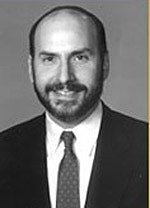SKOKIE, Ill., Oct. 12 (JTA) – For professors in a university’s Judaic Studies program, Jewish literacy appears to be a straightforward proposition. They can insist on prerequisites, delineate academic standards, articulate a curriculum, impose the extrinsic motivation of grades and design objective tests of students’ achievements. That is because their program is one of Judaic studies as opposed to Jewish education, and their goal is to impart information rather than influence behavior. For synagogue rabbis, Jewish literacy is much more of a moving target. Jewish education in the synagogue aims for enhanced Jewish living, as opposed to striving simply for increased Jewish knowledge. It addresses the mind, heart and soul. It addresses children, adults and families — people at every stage of life, with varied backgrounds and divergent interests. Nonetheless, it is possible, even desirable, for a synagogue to design and promote a systematic program of Jewish education and enculturation that moves its members toward Jewish literacy. For some Jews, it is sufficient motivation to know that we are commanded to engage in study as a lifelong endeavor — the mitzvah of Talmud Torah. For other Jews, the synagogue needs to help them understand that active Jewish living will enhance their lives; that a vibrant Jewish community gives them a context for celebrating life’s joys and coping with its challenges; that Jewish texts and rituals give them a vocabulary for expressing the deepest yearnings of their souls; and that learning for its own sake can be profoundly rewarding. Often, the greatest barrier for individuals is a lack of confidence and competence. A program that moves its members toward Jewish literacy fills this gap. There are some Jews who will eagerly respond to such a program and have the time and inspiration to immerse themselves in regular, serious study. The synagogue is obligated to respond by providing opportunities for learning. But most synagogue members are not prepared to study regularly. The synagogue must respond to this population as well by offering introductory programs and then helping it progress beyond the basic classes. Synagogue membership that is diverse in background, knowledge, experience and interest also challenges synagogue leadership to be teachers of Judaism. That teaching must be guided by the conviction that Jewish literacy is not simply about “book learning” but also Jewish heritage and life. To be Jewishly literate, a person need not know everything. Rather, he or she must be familiar with the basic aspects of the religion: the rhythms and cycles of the Jewish year; sacred texts; Jewish history, ethics and values; and the obligations and opportunities of being a Jew. Also, a person needs to know Hebrew — not necessarily to be fluent, but at least conversant with the vocabulary of Jewish life. Jewish literacy is a goal to be sought. Synagogues need to create communities of learning wherein members come to understand that it isn’t so much the attainment of that goal that is meaningful, as the journey to get there. (Rabbi Michael Weinberg is the spiritual leader of Temple Beth Israel in Skokie, Ill., and a past president of the Coalition for the Advancement of Jewish Education.)






